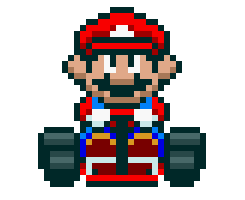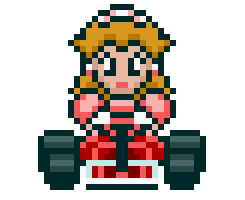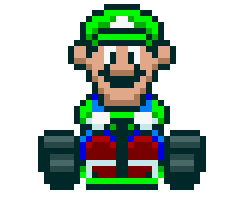TL:DW- Because of the internet age, this game is as good as it could have been.
TL:DW- Because of the internet age, this game is as good as it could have been.
.
Last edited by OttoniBastos - on 08 August 2018I dont agree, her whole point seems to be that you can look for the answers on Google, but thats YOUR fault, and that comparison with Portal is poor, she says you at least need some skills on Portal but... is that even relevant? Once you know the solution to a puzzle in Portal the skills required are just insignificant for the most part.
The Witness is a good game imo, smart puzzles, good feeling of wonder, beutiful artstyle... if you dont like it is not because "you dont get it dude" its just not your kind of game and thats ok.
I'd say I strongly disagree with the author here. Especially considering she brought her whole logic of "check the solution on the internet" down after saying it, given how poorly she supported that view (We went from "Well yeah I guess you could do that with all games...but SKILLZ DUDE!" to "but I only get answers by checking the solutions online! Where's the pay-off?!?").
| Wright said: I'd say I strongly disagree with the author here. Especially considering she brought her whole logic of "check the solution on the internet" down after saying it, given how poorly she supported that view (We went from "Well yeah I guess you could do that with all games...but SKILLZ DUDE!" to "but I only get answers by checking the solutions online! Where's the pay-off?!?"). |
To be clear, the payoff bit is about the story. She's saying that if your gameplay is just answers and the reward for that is weak as well, what's the point. For example, I have looked up the best starts for old school RPGs. However I still 1) had to do it myself and 2) the payoff was often worth it, that's why I wanted to beat the boss.
I can't say I entirely agree with her. But I see the issue. But I also would say I have a pet peeve with stories that confuse vagueness with being philosophical or deep. It's an adolescent attitude that shows a lack of understanding of what makes a story deep and how stories act as a vehicle for communicating complex ideas. Not to say something vague can't be deep (perfect example, The Garden of Forking Paths) but something being simply vague doesn't make the work deep, it makes the writer a dick.
Well, the solution is simple, actually follow Jonathan Blows advice and don't google your answers.
Take a step back, take a break from the game, sleep a night over it, or go and do another puzzle, the game allows for that as far as I'm aware.
If you can google these solutions or not is beside the point because this is a game about self-challenge. If you don't solve the puzzles yourself, you'll never get any gratification from it and might as well not play it.
google to solve puzzles? sheesh, that's so 2010.
Now with YouTube we don't even need to play them anymore. we can just watch other people play them instead.
I can follow her logic and mostly agree. To the nonbelievers, ask yourself if having no easy way out would improve the game's intent. Note the difference between intent and outcome, and the entertainment value of an individual puzzle vs. the entertainment value of the game experience as a whole.
Each individual has a threshhold at which they are no longer having fun with a puzzle and would rather move on. In this day and age, having a quick and accessible option to move on (which does differ from magazines and cheat guides of yesteryear) means individuals simply won't ever need to push themselves past their personal threshhold, thus denying them true enlightenment and growth.








I see her point. I played Art of Balance for the Wii U a while ago. And although it had some clever puzzle design and beautiful graphics... ther was not a real reason to play. Just resolve puzzles. And that's enough reason for some time. But when you have played like 5 or 6 hours from it's total (I don't know how long the game really was), it takes only one or two puzzles you struggle with, and you lost the interest in the game. I quited. There was no reason to continue.
The Witness is not exactly the same, because you have a place to explore and some kind of story aside from puzzles. But it is longer than Art of Balance. A lot longer from what I've been told. It's huge. Besides, the story does not seem to be that extremely interesting thing. So, I could see the same happening when you've played a certain amount of time to this game. You either look up for the solution to continue playing just for inertia... or you quit for pure stress and boredom. And don't get me wrong, I'm not saying that this is what MUST happen in all cases. I'm sure there will be people that will beat the entire game and they will have fun with it 100%. I'm just saying that the author of the video has a point.
This is very different from the Professor Layton series. Here you also have puzzles (some of which are really difficult too)... but at the same time you have a strong story of mystery and in some entries (all of them really) drama. Even if you find a very difficult puzzle, you really want to struggle to solve it, because there is a worthy reward for doing it: continue the story. And even if you get a little tired of that, you have certain minigames that also challenge your mind, but are lot more simple and direct fun to take a rest from the main thing.
In The Witness... is you, this beautiful world, a not that interesting story... and puzzles. Lots of puzzles. You either love being challenged for almost not reward... or you may quit really quickly.

| Goodnightmoon said: I dont agree, her whole point seems to be that you can look for the answers on Google, but thats YOUR fault, and that comparison with Portal is poor, she says you at least need some skills on Portal but... is that even relevant? Once you know the solution to a puzzle in Portal the skills required are just insignificant for the most part. |
This post pretty much sums up what I wanted to say.
I am sick and tired of people complaining about indie games as being pretentious, artsy or simply a walking simulators. You dont like it, dont get it. I dont like football simulators, tough I admire their quality when someone actually takes the time and explains them to me. WIll I play them afterwards? No. But that doesnt mean that I cannot value quality, simply because it is not my cup of tea.
You dont get the puzzles, or the meaning of the game. Mybe it has no meaning for you then, doesnt mean that someone else might not enjoy it, or actually remain with more then a high score.
Vote the Mayor for Mayor!